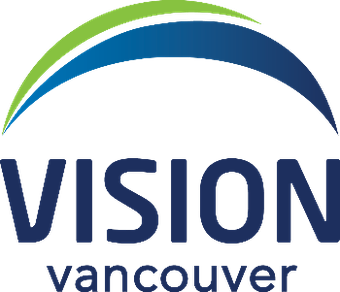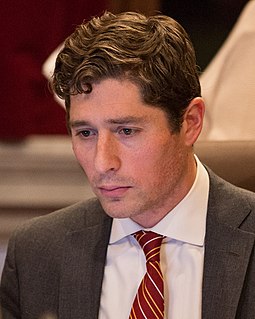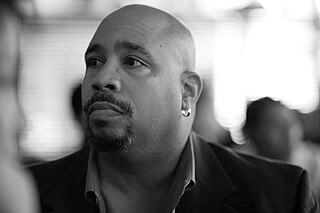
The Green Party of Minnesota is a green political party in the U.S. state of Minnesota. It is affiliated with the Green Party of the United States.

The 2005 Minneapolis municipal elections in the U.S. state of Minnesota held a scheduled primary election on 13 September and a general election on 8 November. Voters in the city elected:

The city of Vancouver, along with the rest of British Columbia's municipalities, held its municipal elections on November 19, 2005. Canadian citizens who were over 18 years of age at the time of the vote, and had been a resident of Vancouver for the past 30 days and a resident of BC for the past six months, were able to vote for candidates in four races that were presented on one ballot. In addition, Canadian citizen non-resident property owners were eligible to vote.

Vision Vancouver is a social democratic and green liberal municipal political party in Vancouver, British Columbia, Canada. Vision was formed in the months leading up to the 2005 municipal election.
The City of Vancouver, Canada, held municipal elections on November 16, 1996. Canadian citizens who were over 18 years of age at the time of the vote, and had been a resident of Vancouver for the previous 30 days and a resident of B.C. for the previous six months, were able to vote for candidates in four races that were presented on one ballot. In addition, Canadian citizen non-resident property owners were eligible to vote.
Instant-runoff voting (IRV) is used for state and congressional elections in Maine and for local elections in 11 cities, where it is often called "ranked-choice voting." Those cities include San Francisco, California; Oakland, California; Berkeley, California; San Leandro, California; Takoma Park, Maryland; Basalt, Colorado; Telluride, Colorado; St. Paul, Minnesota; Minneapolis, Minnesota; Santa Fe, New Mexico, and Portland, Maine. It is pending implementation in several additional cities, including in 2019 in Las Cruces, New Mexico and St. Louis Park, Minnesota. IRV is commonly used for student government and other non-governmental elections, but it has been proposed for Democratic primaries.

The 2009 Minneapolis mayoral election was held on November 3, 2009 to elect the Mayor of Minneapolis for a four-year term. Incumbent R. T. Rybak won re-election for a third term in the first round with 73.6% of the vote.

Elizabeth A. "Betsy" Hodges is an American politician who served as the 47th mayor of Minneapolis. A member of the Minnesota Democratic-Farmer-Labor Party, she represented Ward 13 on the Minneapolis City Council from January 2006 until January 2014. Hodges was reelected to the city council in the 2009 Minneapolis municipal elections.
Andy Exley is an American politician and member of the Green Party of Minnesota in Minneapolis, Minnesota. He earned his bachelor's degree from Carleton College in 2003. He served as the chairman of the Green Party of Minnesota from June 2008. He was a candidate for the Minneapolis City Council, Ward 6 in the 2009 Minneapolis municipal elections. Minneapolis elections use ranked choice voting; Exley received 165 first place votes for 8.55% of the vote.

The 2013 Minneapolis mayoral election was held on November 5, 2013 to elect the Mayor of Minneapolis for a four-year term. This was the second mayoral election in the city's history to use instant-runoff voting, popularly known as ranked choice voting, first implemented in the city's 2009 elections. Municipal elections in Minnesota are nonpartisan, although candidates are able to identify with a political party on the ballot. After incumbent Mayor R. T. Rybak announced in late 2012 that he would not seek a fourth term, 35 candidates began campaigns to replace him. Many of these candidates sought the endorsement of the Minneapolis unit of the Minnesota Democratic–Farmer–Labor Party (DFL), though the convention ultimately ended with no endorsement.
The City of Vancouver, Canada, held municipal elections on November 20, 1999. Canadian citizens who were over 18 years of age at the time of the vote, and had been a resident of Vancouver for the previous 30 days and a resident of B.C. for the previous six months, were able to vote for candidates in four races that were presented on one ballot.

The 2013 Minneapolis City Council elections were held on November 5, 2013 to elect the 13 members of the Minneapolis City Council for four-year terms. 10 races produced a winner in the first round and the remaining three in the second round. Candidates affiliated with the Minnesota Democratic–Farmer–Labor Party (DFL) won all 12 of the seats where they had fielded a candidate, and the Green Party of Minnesota won the remaining one seat.

A general election was held in Minneapolis on November 5, 2013. Minneapolis's mayor was up for election as well as all the seats on the City Council, the two elected seats on the Board of Estimate and Taxation, and all the seats on the Park and Recreation Board. Voters were able to rank up to three candidates for each office in order of preference.

The 2009 Minneapolis City Council elections were held on November 3, 2009 to elect the 13 members of the Minneapolis City Council for four-year terms. Candidates affiliated with the Minnesota Democratic–Farmer–Labor Party (DFL) won 12 seats and the Green Party of Minnesota one seat.

The 2014 Vancouver municipal election took place on November 15, 2014, the same day as other municipalities and regional districts in British Columbia selected their new municipal governments. As with previous elections, voters elected one mayor, 10 councillors, nine school board trustees, and seven park board commissioners through plurality-at-large voting. Voters also voted on whether to approve a capital budget.

John M. Quincy is an American politician and marketing consultant living in Minneapolis. From 2010–2018, he served two terms on the Minneapolis City Council as a representative of the city's 11th Ward. Quincy moved to Minneapolis in 1994 and sought the endorsement of the Minnesota Democratic–Farmer–Labor Party (DFL) in 2006 for a seat on the Minneapolis Board of Education which he did not receive. He won both the DFL's endorsement and the 2009 City Council election and served as the head of several committees. He has also acted as a member of the Minneapolis–Saint Paul International Airport's Noise Oversight Committee.

The 2017 Minneapolis mayoral election was held on November 7, 2017, to elect the Mayor of Minneapolis. This was the third mayoral election in the city's history to use ranked-choice voting. Municipal elections in Minnesota are nonpartisan, although candidates were able to identify with a political party on the ballot.

A general election was held in Minneapolis on November 7, 2017. Minneapolis's mayor was up for election as well as all the seats on the City Council, the two elected seats on the Board of Estimate and Taxation, and all the seats on the Park and Recreation Board. Voters were able to rank up to three candidates for each office in order of preference.

The 2017 Minneapolis City Council election was held on November 7, 2017, to elect the members of the Minneapolis City Council. The political composition remained unchanged, with the Minnesota Democratic–Farmer–Labor Party (DFL) retaining 12 seats and the Green Party of Minnesota one seat. Three DFL incumbents were defeated by intraparty opponents. The new City Council convened on January 8, 2018.


















